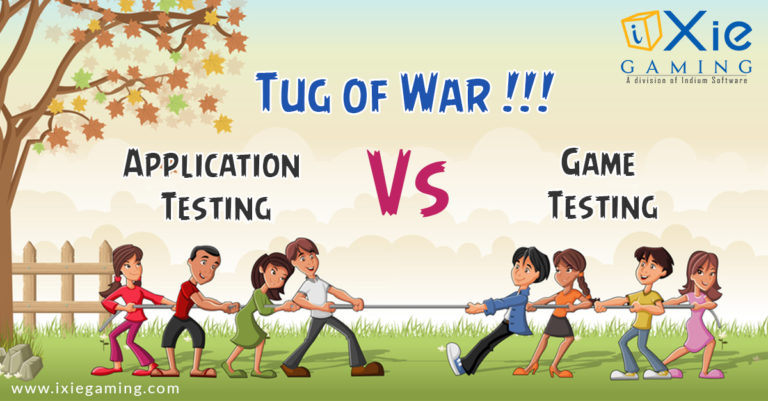As the gaming world evolves, testing has become more complex. In fact, manually testing modern games can be time-consuming, delaying the release cycle. These games have high-quality visuals, animations, and sounds, which renders 100% manual testing infeasible. This has resulted in a new game development trend – test automation. With game test automation, developers have been able to save time and resources and get more accurate test results.
Automated game testing can transform your testing process and experience. However, you must use the right test automation tools to get the best outcome from automated testing. Join us as we explore the test automation tools, including their overview, pros, and challenges.
Game Test Automation Tools: Overview
Game testing is crucial to building a robust and high-quality game. One of the ways to improve game test results is through automation tools. Automation tools enable you to run tests on different platforms effortlessly, regardless of their intricacy or complexity. This reduces your testing workload and enhances efficiency.
Unlike human-driven tests, automated tests deliver more reliable results, as you can run them repeatedly. This makes it easier to identify errors or bugs in your game. Also, automated game testing tools help minimize the cost related to time-consuming manual testing approaches. As a result, they provide additional resources for other production areas.
What’s more, automated testing tools help developers keep up with the dynamic gaming landscape. They enable you to quickly adapt to new testing platforms. Also, they ensure a seamless user experience (UX) regardless of the device used by the player.

Top 5 Game Testing Automation Tools
As a game developer, here are some top game testing automation tools you should know to transform your testing experience:
1. Selenium
Selenium is a powerful game-testing automation tool for testing web applications. It allows you to run automated tests on application programming interfaces (APIs), code, frameworks, and software shells. This tool helps quality assurance (QA) teams find and localize game errors and bugs. This capability is crucial in the world of cloud and cross-platform gaming. Its unique features work with Python and JS and support all internet platforms and browsers.
2. Unity Test Framework
Unity is a popular game development engine. This engine features one of the most robust built-in automated test frameworks. It is mostly used for testing Unity games. This test framework supports integration and unit testing, helping you identify performance issues and bugs.
The Unity test framework has features like test fixtures, play mode tests, and assertions. As a result, it facilitates robust testing practices, ensuring the stability and reliability of Unity games. Also, this tool contributes significantly to maintaining code quality and improving the overall development process with the Unity environment.
3. Appium
Appium is an open-source game test automation tool. It is mainly used to test mobile applications and games across different platforms and devices, including iOS, Windows, and Android. This automated game-testing tool supports different programming languages. As a result, it supports a broad range of development environments.
Appium’s flexibility and ability to interact with mobile, web, hybrid, and native applications make it a popular game test automation tool. These capabilities enable it to automate tests in the dynamic mobile game development landscape, ensuring seamless functionality across diverse devices.
4. TestComplete
TestComplete is a versatile game test automation tool that supports mobile, web, and desktop application testing. It provides many performance, regression, and functional testing features. Also, it offers robust recognition capabilities, enabling interaction and identification with game elements. This automated game testing tool allows testers to expand test coverage and maximize their efforts to provide high-quality games.
5. Jenkins
Jenkins is a popular tool for continuous integration and continuous delivery (CI/CD) processes. However, it goes beyond its roots in CI/CD to support automated game testing solutions. This automated testing tool boasts a broad plugin ecosystem and great extensibility. Therefore, it enables you to seamlessly integrate different testing frameworks. This ensures robust quality assurance (QA) in game development pipelines.
What’s more, Jenkins orchestrates the execution of automated tests. As a result, it fosters rapid feedback loops and efficient collaboration. Its adaptability makes it a cornerstone in streamlining game development processes and improving overall project reliability.

Advantages of Game Test Automation Tool
Automated game testing tools have become crucial in game development. Here are some benefits of these tools:
- Game test automation tools facilitate faster and more accurate testing.
- They facilitate 24/7 testing, delivering consistent results. This ensures smooth launching and running of games.
- Automated game testing tools save on cost by eliminating manual steps and reducing the need for more testing staff or costly equipment purchases.
- These game-testing tools deliver detailed test reports, which can be shared across departments. This promotes better communication and collaboration between teams. Also, it streamlines decision-making processes.
Challenges of Game Test Automation
While game test automation has many benefits, it has several challenges, including the following:
- Introducing automated game tests into an existing test suite can be challenging. You must ensure the new introduction doesn’t compromise the current tests.
- The gaming industry is ever evolving. So, developers must access different emulators and devices to effectively test their games across all platforms.
- Accuracy is crucial in ensuring companies meet QA standards. Therefore, the automation tools should be robust enough to discover issues or discrepancies between multiple software versions or devices before launch.
As a developer, you must understand these challenges to effectively use automated testing tools. In fact, it will help you save money and time while ensuring the tools deliver accurate and reliable test results.
Conclusion
Integrating game test automation tools into the development process is an effective strategy that ensures your game releases are consistent and quality. With these tools, you can identify and mitigate game issues during testing. This ensures you launch a game with maximum performance and minimal errors. Also, they help you deliver games that meet the players’ expectations. However, you must be aware of the challenges related to these automated testing tools. This will enable you to effectively leverage their power to streamline the game testing solutions.
Frequently Asked Questions:
Game test automation involves using tools and frameworks to automate the testing process for video games. It’s crucial for identifying bugs, ensuring consistent performance, and speeding up the testing cycle.
The top 5 game testing tools are as follow:
(i). Selenium
(ii). Unity Test Framework
(iii). Appium
(iv). TestComplete
(v). Jenkins
Some of the advantages of game test automation tools are as follows:
(i). Game test automation tools facilitate faster and more accurate testing.
(ii). They facilitate 24/7 testing, delivering consistent results.
(iii). Automated game testing tools save on cost by eliminating manual steps and reducing the need for more testing staff or costly equipment purchases.
(iv). These game-testing tools deliver detailed test reports, which can be shared across departments streamlining the decision-making processes.
Some of the challenges of game test automation are as follows:
(i). Introducing automated game tests into an existing test suite can be challenging.
(ii). The gaming industry is ever evolving. So, developers must access different emulators and devices to effectively test their games across all platforms.
(iii)Accuracy is crucial in game QA so automation tools should be robust enough to discover issues or discrepancies between multiple software versions or devices before launch.






